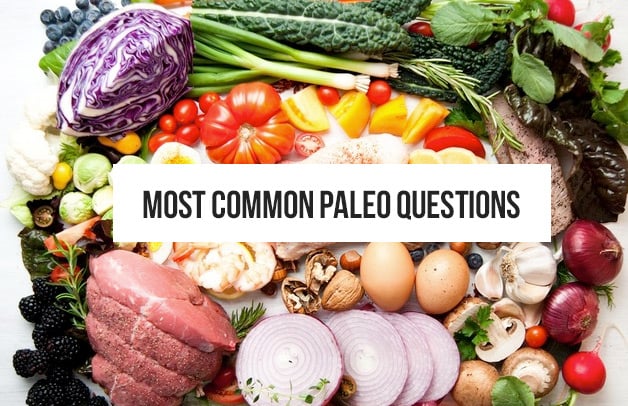
In case you didn’t know, I’ve been enjoying the paleo diet (if somewhat modified) and lifestyle for over 5 years. In some ways, I am a paleo veteran. I also consider myself well-versed in the subject matter, both through self-education and by simply being around the right (read *smart*) people.
Therefore, people come to me with questions. My readers, friends and family, media journalists, university students, and other bloggers – everyone wants to know WHY the heck am I eating this way, and what is it all about.
Here is a collection of some of the most common questions I get asked about the paleo diet. This will probably become an evergreen post, kind of like my own FAQs section for Eat Drink Paleo.
What Is Paleo?
As much as paleo is now a pretty popular mainstream diet choice, there are still many people who haven’t heard of it. If you’re one of them or you know someone who wants to learn a little bit about it, I have this handy What Is Paleo page on the blog, in which I cover the basic paleo philosophy. You can learn more about the foods on the paleo diet here.
My full page of paleo resources, useful links and further reading is here. I also have a simple, yet comprehensive overview of the paleo diet in my cookbook.
What Are The Benefits of The Paleo Diet? Are There Any Scientific Studies On A Paleo Diet?
I have a post covering the benefits of the paleo diet here. For more science and research, I recommend checking out Robb Wolf’s compilation here.
So, What Do You Eat?
You’d be surprised how many people ask this question. Well, I eat lots and lots of vegetables – both starchy and non-starchy kind; a variety of protein such as meat, poultry, game, fish, seafood and eggs; some nice fruit that’s in season; a little nuts and seeds (usually incorporated into dishes); lots of healthy fats such as coconut oil and olive oil, coconut milk, avocados, oily fish, ghee and butter.
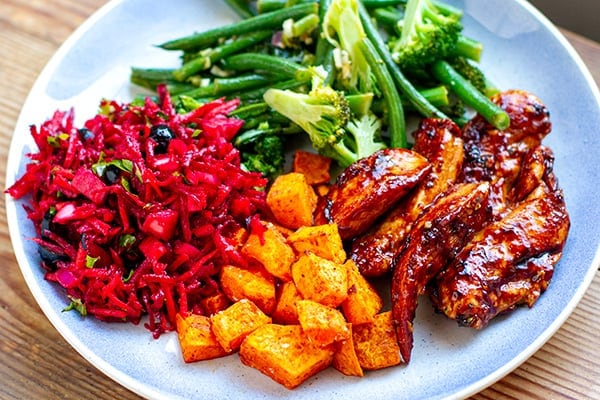
I have also done paleo for a long time, and through various eliminations and experiments, I have discovered which foods I tolerate well and which I should stay away from. Although I consume enough carbohydrates from vegetables and fruit, I find that I do better with a few extra carbs thrown in (mostly when I’m super active). I do quite well with white rice, some buckwheat, and a bit of quinoa. Read about white rice and paleo here. Sometimes, I might have a little oatmeal or corn chips.
I also tolerate butter and yoghurt/kefir and aged cheeses but I can’t do much dairy as it gives me sinus issues.
I am no longer a big drinker but I enjoy some red wine and a glass of bubbly. I love a cup of black coffee in the morning. Of course, I eat some non-paleo foods from time to time, but I am a human and I believe it’s good to enjoy those things once in a while if you can tolerate them. I wrote more about my approach to paleo here.
Is [insert food name] Paleo? Or Rather, ‘That’s Not Paleo!’
Often, people genuinely don’t know if something is paleo compliant or not. Is quinoa paleo? Are oats paleo? Can I eat fermented soy like miso?
These are valid questions and they are often not black and white.
Another group of people will often question me if I choose to use an ingredient or food that’s not 100% kosher in their paleo book, like say wheat-free tamari sauce (which is soy-derived) or gluten-free baking powder, or white potatoes.
I call these guys the ‘paleo police’ and my only piece of advice to you is ‘Don’t become one’.
Stressing over every little ingredient or whether something is super clean and natural or not is going to do more harm to your body than eating the damn thing. It can also build an unhealthy relationship with food.
Our reactions to foods will vary widely based on what we’re sensitive to, the quality of the food and the amount of the food consumed. The poison is often in the dose.
And although I am not saying that everyone can relax and indulge in sourdough bread and corn chips on a weekly basis, it is absolutely fine to give yourself some slack once in a while.
Remember, eat real food and make the best choices possible. Sometimes, that means the best of the worst choices possible.
Don’t Our Bodies Need Carbohydrates To Function?
Sure they do, although they can also use fat.
The problem with carbohydrates is in the amount if we consume in our standard Western diet, and the sources of carbohydrates we rely on. If you don’t use up the energy you get from the carbohydrates you consume, it will get stored as fat, and not the good kind (especially if you’re eating a lot of sugar). Another issue is that many carbohydrate-rich foods like grains and legumes aren’t always the most nutrient-dense, so if we make them the bulk of our meals, we might be missing out on some essential nutrients.
One key point that many people seem to forget (e.g. media journalists and uneducated critics) is that vegetables and fruit ARE sources of carbohydrates, and they are highly nutritious.

Paleo diet is lower in carbohydrates but it’s not zero-carb and often not even low-carb. I consume plenty of carbs from vegetables, including starchy tubers, fruit and occasional white rice, potatoes and quinoa.
You have to experiment with what works for you based on your goals, your health condition, and even your gender (yes, women thrive better with more carbs).
What About Calcium? What About Fibre?
I have an extensive post covering the topic of calcium on the paleo diet. You can read it here.
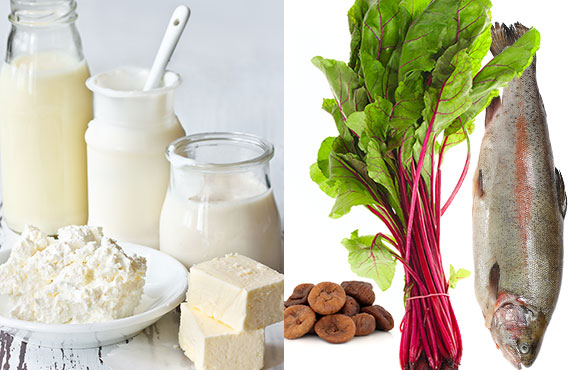
Fibre is present in fruits, vegetables, nuts and seeds. I eat plenty of those. Therefore, I am not worried about fibre.
If you feel like you need a little extra fibre to get things moving, you can supplement with some chia seeds and flaxseeds, and focus on extra high-fibre foods such as celery, pears, avocados, cruciferous vegetables, berries, kiwifruit and nuts and seeds.
How Can I Eat Paleo On The Budget?
This question often comes up and rightfully so. Paleo can be expensive. So can getting chronically ill or paying for diet shakes and weight loss supplements. It’s easy to run up a huge bill if you stock you basket with expensive superfoods and rare ingredients. But if you stick to real food, ideally in season, you don’t have to spend a fortune to eat paleo.
I find that batch cooking my meals on the weekend helps to save money as you use up most of the foods that you get. Check out some of my free paleo menus and start prepping.
Ok, so this list doesn’t cover all the questions I get but it’s a start. If you have your own question for me, please pop a comment below or email me at [email protected]. Even if I don’t have the answer, I will find one for you. I am very good at digging out the right information.

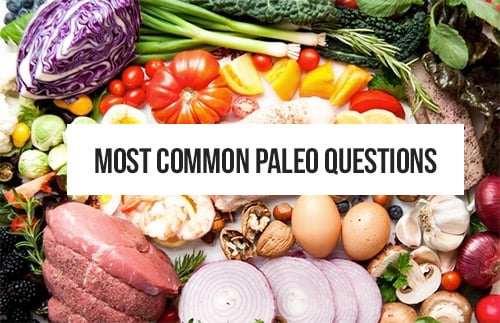

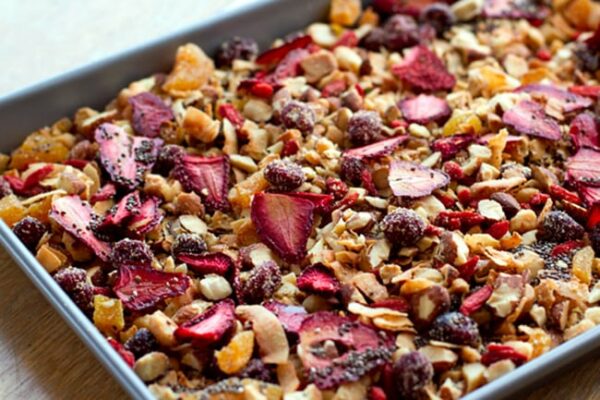
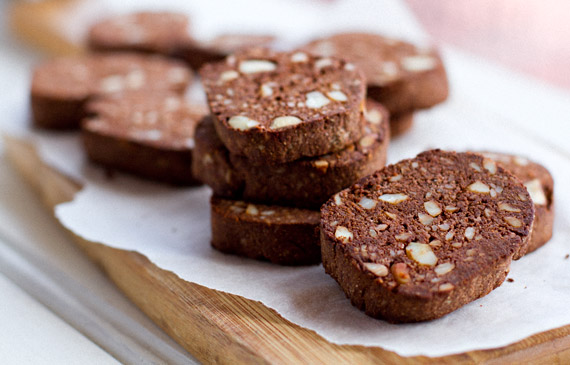
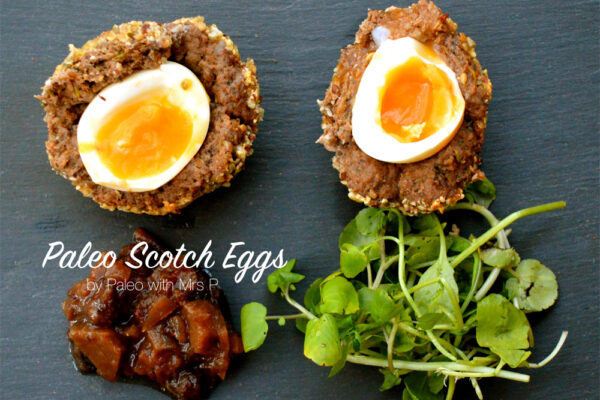
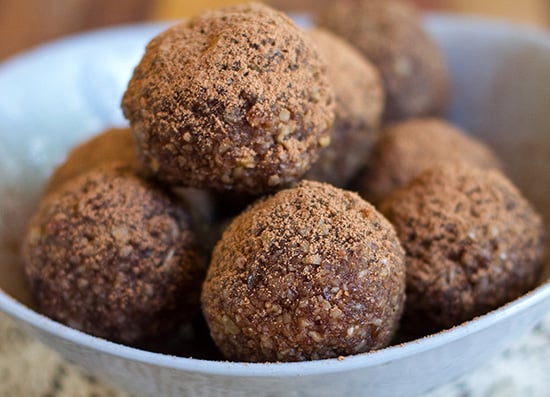
Great list! The most common question is why do I eat Paleo, where do I get my calcium from and how much weight have I lost on the Paleo diet and how long did it take me to loose that weight.
Yes, the weight loss often comes up as a lot of people see paleo as a bit of a quick diet fix. Interestingly, I find that most people’s goals change once I start eating paleo-ish way because they start feeling fantastic as well.
Is jack fruit is paleo ? ..we can eat it or not
Yes, you can eat it! It’s a fruit.